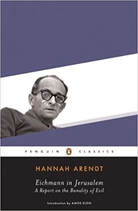 Our September 11, 2017, topic was Overcoming Extremism. We discussed writings by a number of writers on the subject of extremism. Arno Michaelis is the author of My Life after Hate (2012). He was the leader of a White Supremacist group and metal band that received considerable notoriety. He discusses how he and friends continually looked for fights while in a drunken racist stupor:
Eventually, after the birth of his daughter and compassionate treatment by members of minorities he once despised, he turned his attitude and life around. He now frequently appears on talk shows where he expounds on how the racist ideology he once promoted nearly destroyed his life and the lives of those around him. A quote from near the end of the book is clear about the lessons he learned and wants to share with others:
We then discussed a recent article in the Washington Post: “The road to hate: For six young men, Charlottesville is only the beginning.” The article confirms the disenfranchisement of those in hate groups. They see the world as conspiring against them and their interests. They are willing to fight (and sometimes die) to defend what they see as a threat by other groups of their rights — and their very being.  For her book Terror in the Name of God (2004), Jessica Stern interviewed terrorists of many backgrounds. They were willing to speak to her because of her ability to listen to them and their hope that their story would be told. This shows that all people seek recognition and understanding, while many justify violence to get that recognition. She speaks with confirmed and convicted terrorists of Christian, Jewish and Muslim backgrounds, and finds that they have much in common:
Stern believes that the “war on terror” as we have been conducting it is doomed to fail because our attacks on terrorist groups only confirm their view that we represent evil. This also helps their recruiting efforts. Rather, we need to make an effort, as she has, to recognize the reasons that people become extremists:
The best way to combat extremism is to become models for promoting our values:
Members of hate groups learn to dehumanize those that they become to believe deserve extermination:
Living in what we call a democracy is no guarantee against the violation of human rights, as we have seen in our own country and many others. From The Future of Democracy:
What do all of the above views have in common?
Please recommend this newsletter to people who you think might appreciate it. If you want to be added to the list to be notified when a new newsletter is posted, fill out our contact form and check the box just above the SUBMIT button. You may also use that form to be removed from our list.
The Future of Democracy can be ordered wherever books are sold. Click ↓ (#) Comments below to view comments/questions or add yours. Click Reply below to respond to an existing comment.
0 Comments
|
 5th edition now available 5th edition now available
Steve ZolnoSteve Zolno is the author of the book The Future of Democracy and several related titles. He graduated from Shimer College with a Bachelor’s Degree in Social Sciences and holds a Master’s in Educational Psychology from Sonoma State University. He is a Management and Educational Consultant in the San Francisco Bay Area and has been conducting seminars on democracy since 2006. Archives
July 2024
Categories |

 RSS Feed
RSS Feed